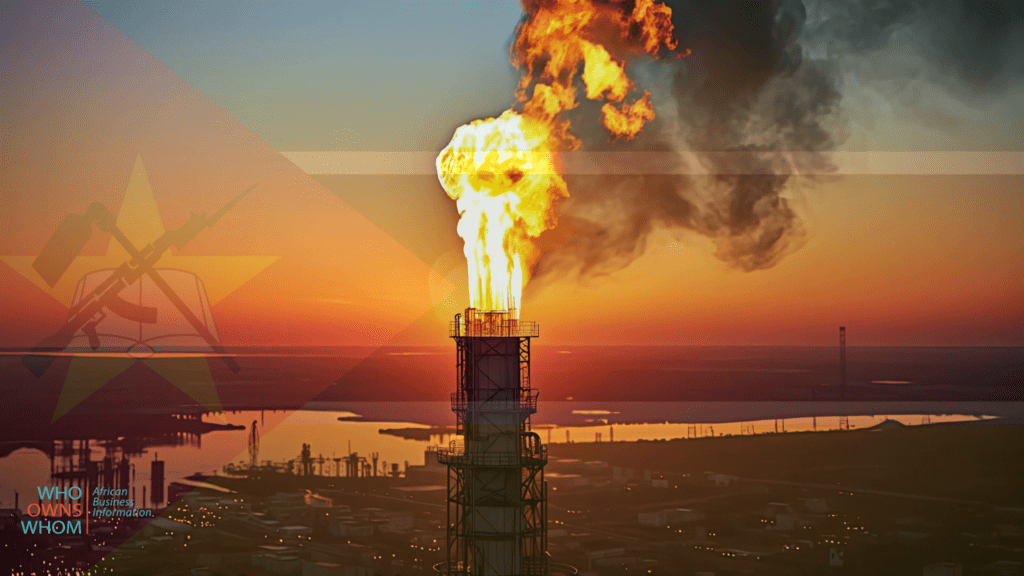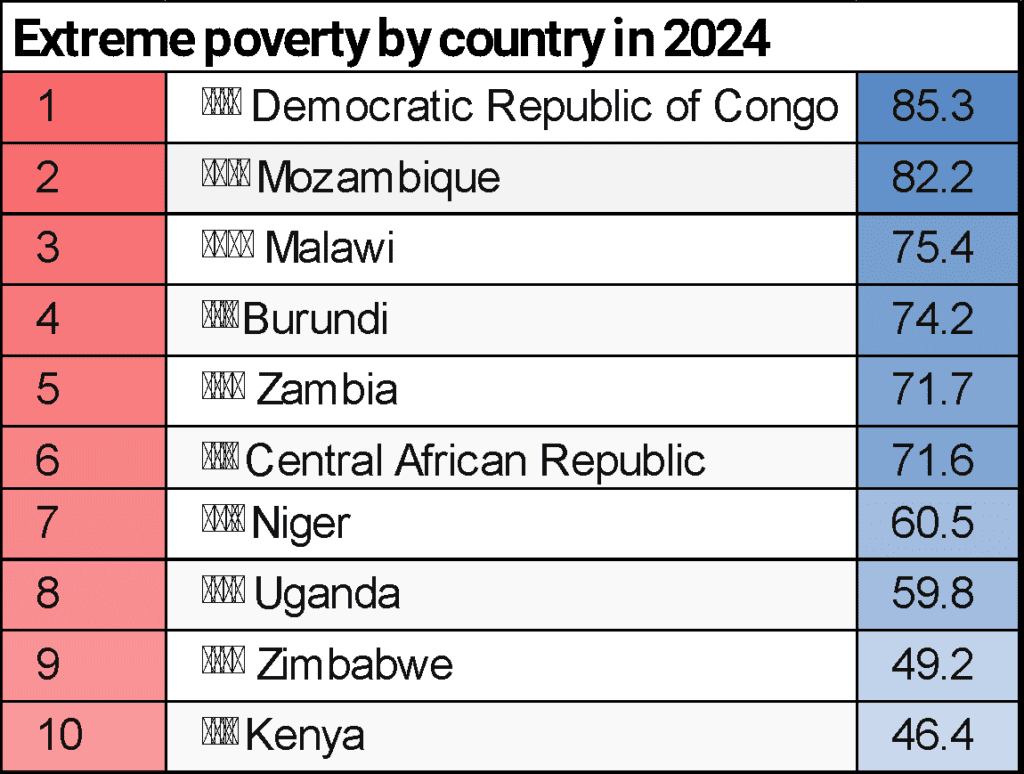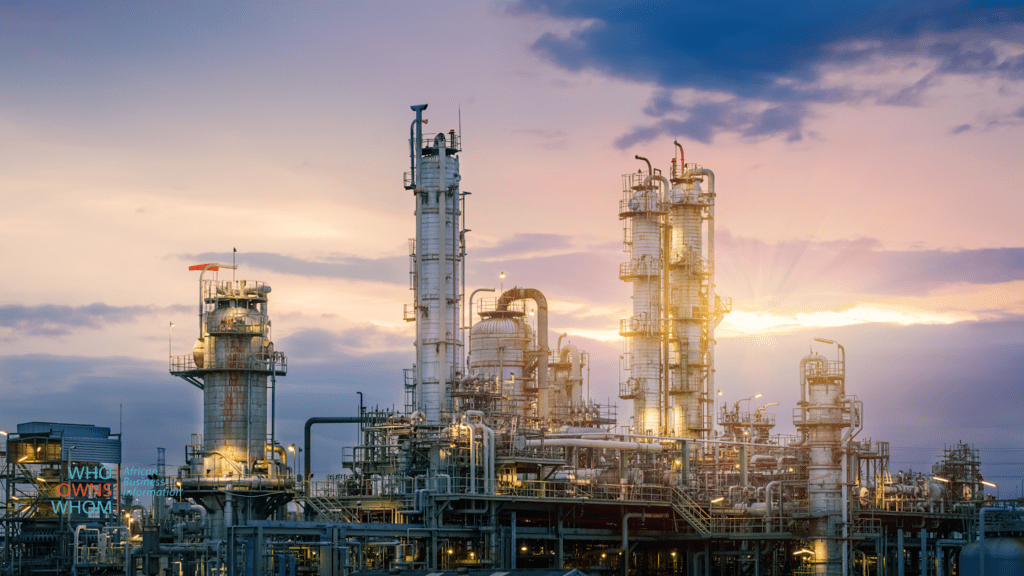Petroleum in Mozambique: powering growth and energy security
Clean energy and environmental concerns are taking the spotlight globally, with the move to electric vehicles taking centre stage. It is reportedly near the end for petroleum as the main source of energy for transport, heating, and a range of other applications. Yet, on- and offshore exploration by oil majors is ongoing, with some shift towards gas from oil. The burning of gas flares on oil rigs is now largely being replaced by extraction, which is considered more environmentally friendly.

The size of Mozambique’s gas reserves
Mozambique is blessed with significant proven commercially viable reserves, having the third-largest proven natural gas reserves in Africa after Nigeria and Algeria, and hitting exports of US$2.1bn in 2024. The Who Owns Whom report on the petroleum industry in Mozambique provides a detailed overview of the various oil and gas fields and exploration blocks on and off the country’s shores.
The report indicates how Mozambique is ahead of Namibia in the race to commercialisation and revenue generation from oil and gas fields. South Africa has been an importer of about 5.9bcm liquefied natural gas (LNG) annually via pipeline from the onshore Temane fields. The report also states that Mozambique started producing LNG on a floating liquefied natural gas (FLNG) facility in the Rovuma basin and exported by LNG carriers. The Coral South project, operated by Eni, started another FLNG in the same area in 2022 which is expected to be operational by 2028. The Rovuma basin discovery is one of the largest in the last 15 years.
Impact of unrest on mega LNG projects in Mozambique
The bigger on-land LNG facilities from the Rovuma basin are delayed by the insurgencies in the area, which saw Palma, a regional town in Cabo Del Gabo, on the coast north of the Rovuma River being overrun and about 6,000 people killed. TotalEnergies declared force majeure on the project, and ExxonMobil. Today about 10,000 Rwandan troops are present to contain the instability with persistent attacks by insurgents in the area near these companies’ LNG projects which are preventing the resumption of work.
The post-election unrest in 2024 also saw Mozambique lose oil exports to Malawi, Zimbabwe and Zambia with gas exports from the floating LNG terminal not being affected;

The damage is almost incalculable in lost revenue and lost opportunities for Mozambicans.
Delayed oil and gas projects is depriving the country of much-needed growth. They are estimated to have the potential to lift most of its citizens out of poverty, which is one of the worst in Africa, as shown in the table by Visual Capitalist. By comparison, Namibia, which also has significant potential as an oil and gas exporter on the continent, does not even feature among the 30 poorest countries.
Mozambique’s paltry GDP growth of 1.9% in 2024, according to the IMF, is expected to increase to a more substantial 9.3% in 2029 and 11.4% in 2030, driven by higher LNG production. The impact of this level of growth is huge, and can help create a more diversified economy and a high-value-added, services-oriented country.

Opportunities and outlook for the country’s petroleum sector
As highlighted in Who Owns Whom’s report, trade in petroleum products is forecast to increase amid higher demand in landlocked neighbouring countries, and the establishment of a planned refinery will allow the country to reduce its imports of petroleum products and export locally-refined products, while also increasing production and exports of natural gas.
The country’s production of natural gas has already increased, including from its floating LNG facility, which is less susceptible to terror attacks, as shown in this graph. With the development of on-land infrastructure, including distribution, more domestic consumption will follow.
The forecasts for the big take-off look promising, with Sasol also conducting onshore exploration to replace the current Temane field’s declining production as it reaches its end of life.
For Mozambique to take advantage of the growth opportunities, prioritising security and improving the national road network are paramount. The country’s growing population, expected GDP growth, and demand for petroleum products from neighbouring countries, can make Mozambique an attractive country for investment.
Contact us to access WOW's quality research on African industries and business
Contact UsRelated Articles
BlogCountries South Africa
Digital disruptors and bold innovators are reshaping South Africa’s banking sector
Contents [hide] The banking industry in South Africa has always had an excellent reputation, both locally and internationally, with a total asset base of approximately R8.2tn, which is larger than...
BlogCountries South Africa
South African International Trade Trends
The South African international trade trends report provides a detailed overview of South Africa’s international trade trends up to 2025, highlighting how global shocks, shifting geopolitical dynamics, and evolving policy...
BlogCountries Human health and social work activitiesSouth Africa
South Africa’s Healthcare Challenges and the Future of Universal Health Coverage
Contents [hide] Healthcare is a vital cog in any economy. When the nation’s workforce is healthy, there is more economic activity, businesses do well with less absenteeism and highly productive...




